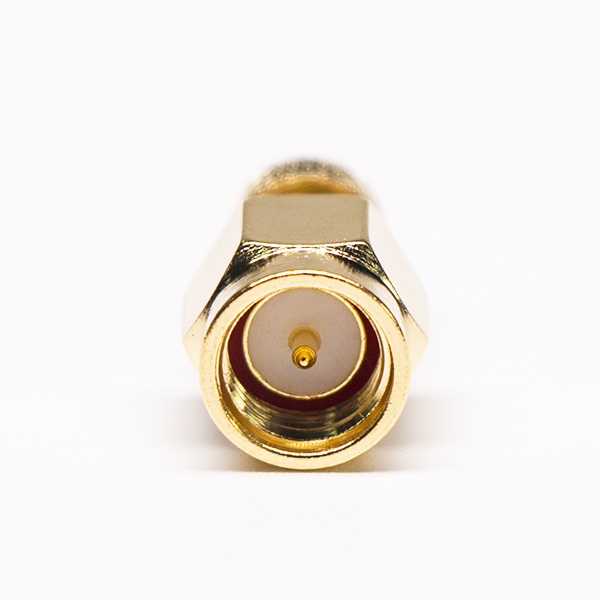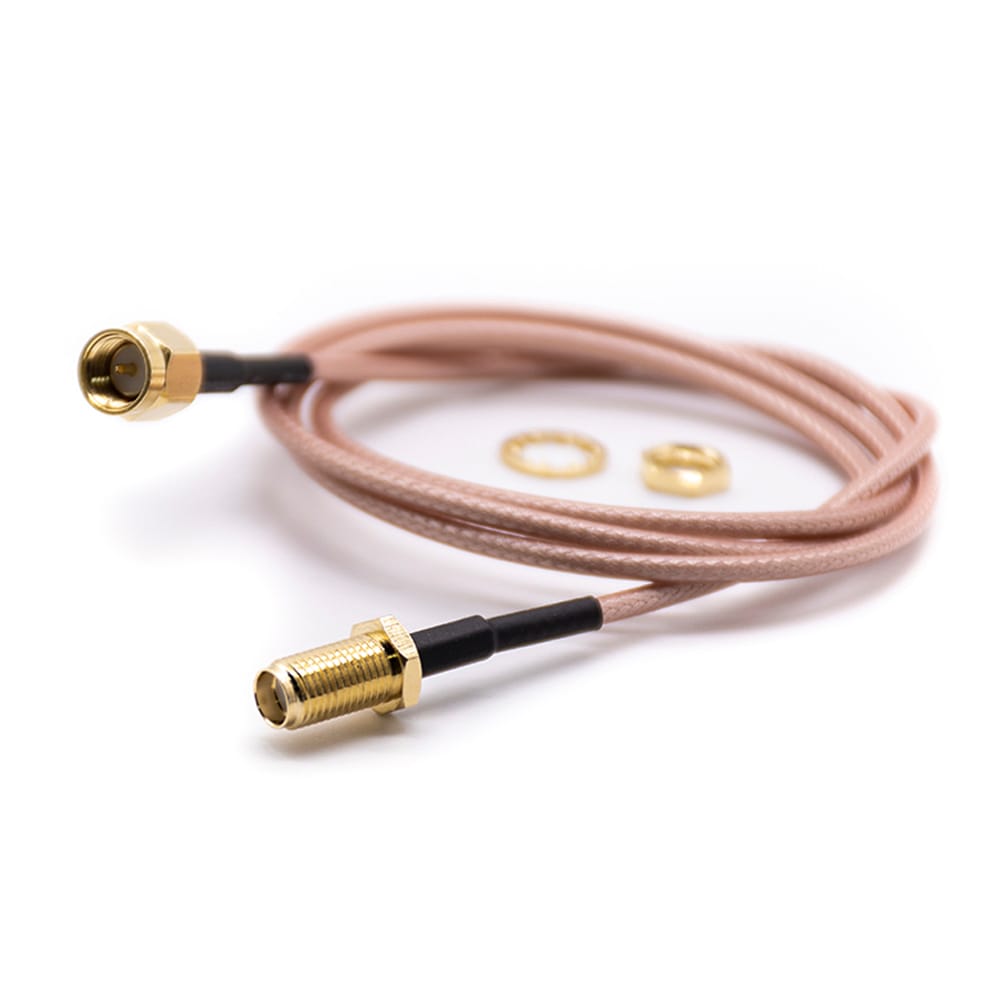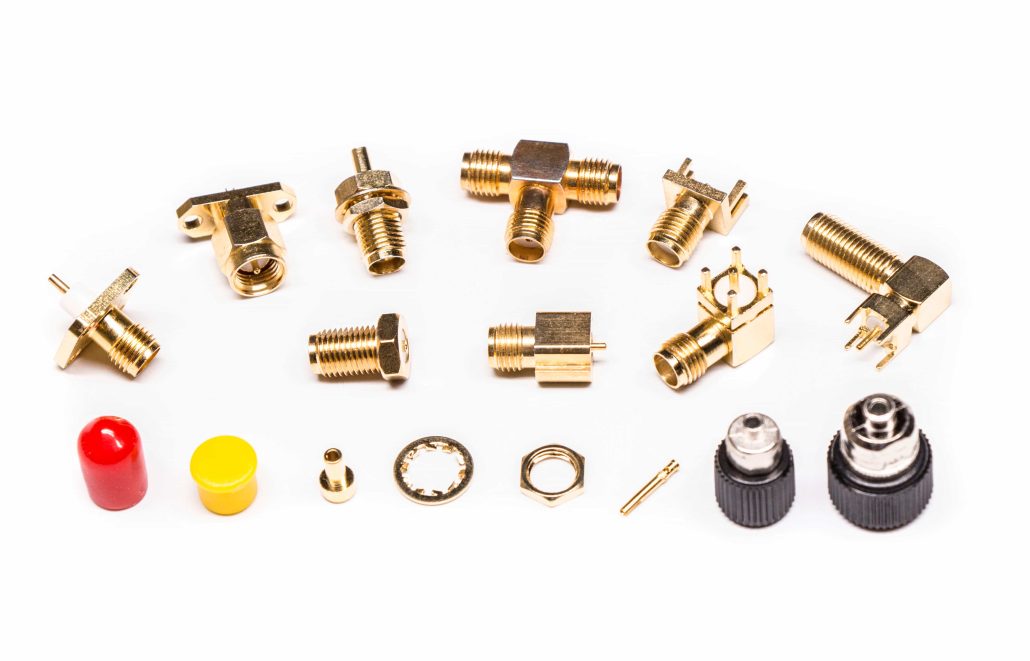The
SMA connector is an ultra-small coaxial cable connector that derives its name from the Sub-Miniature A connector. It has many applications. To provide connections for RF components within devices that need coaxial connections. It usually provides an RF connection between circuit boards. Many microwave components including Filters, Attenuators, Mixers and Oscillators, use SMA connectors.
The connector has a threaded external connection interface in a hexagonal shape. Use a wrench to tighten it. A special torque wrench allows them to tighten to the correct seal for a good connection without over-tightening. The required torque is usually 8 inch-pounds.
Technical Specifications of SMA Connectors
Temperature Range: -65°C to +165°C (PE Cable -40°C to +85°C)
Vibration: VibraTIonMIL-STD-202, Method213
Characteristic impedance: 50Ω/75Ω
Frequency Range: DC ~ 12.4GHz (semi-rigid cable 0 ~ 18GHz)
Operating Voltage: 335Vmax (RMS)
Withstanding Voltage: 1000Vrms (sea level min.)
Between Inner Conductors:≤3MΩ
Between Outer Conductors: ≤ 2MΩ
Insulation Resistance: ≥5000MΩ
Insertion Loss: ≤0.15dB/6GHz
VSWR: Straight: soft cable ≤ 1.10 + 0.002f semi-rigid cable ≤ 1.05 + 0.001f; Right angle: soft cable ≤ 1.20 + 0.003f semi-rigid cable ≤ 1.10 + 0.001f
Durability: coupling ≥ 500 times (cycles)
Performance of SMA Connectors
SMA connectors are constant by design and have an impedance of 50 ohms. SMA connectors were originally designed and specified for use up to 18 GHz. Although some versions are available for frequencies up to 12.4 GHz and also 24 or 26.5 GHz. Higher frequency ceilings may need operation with higher return loss.
The actual specification of a particular connector is highly dependent on the manufacturer and type. And they can offer several different quality or performance levels. It is best to check the connector specifications carefully.
Typically, SMA connectors have a higher reflection coefficient than other connectors up to 24 GHz. This is due to the difficulty of fixing the dielectric support precisely. But despite this difficulty, some manufacturers have managed to overcome this problem properly. And are able to specify their connectors up to 26.5 GHz.
With flexible cables, frequency limits are usually determined by the cable rather than the connector. This is because the cables connecting the SMA connectors are small and the losses in the cables are much higher than the losses in the connectors. Especially at the frequencies that may use it.
SMA Connectors Power Rating
In some cases, the power rating of SMA connectors is essential. So the key parameter determines the average power handling capacity of a mating coaxial connector. It can deliver high currents and maintain thermal ramping to moderate temperatures.
The heating effect is mainly caused by the contact resistance, which is a function of the contact surface area and the way the contact pads bond. A critical area is the center contacts – these must be properly formed and well connected together. It should also be worth noting that the average power rating decreases with increasing frequency. This is because resistance losses increase with frequency.
The power handling figures for SMA connectors vary widely between manufacturers. Some figures suggest that they can handle 500 watts at 1 GHz, dropping to less than 200 watts at 10 GHz. But this is far higher than the confidence many people have in getting through them.




